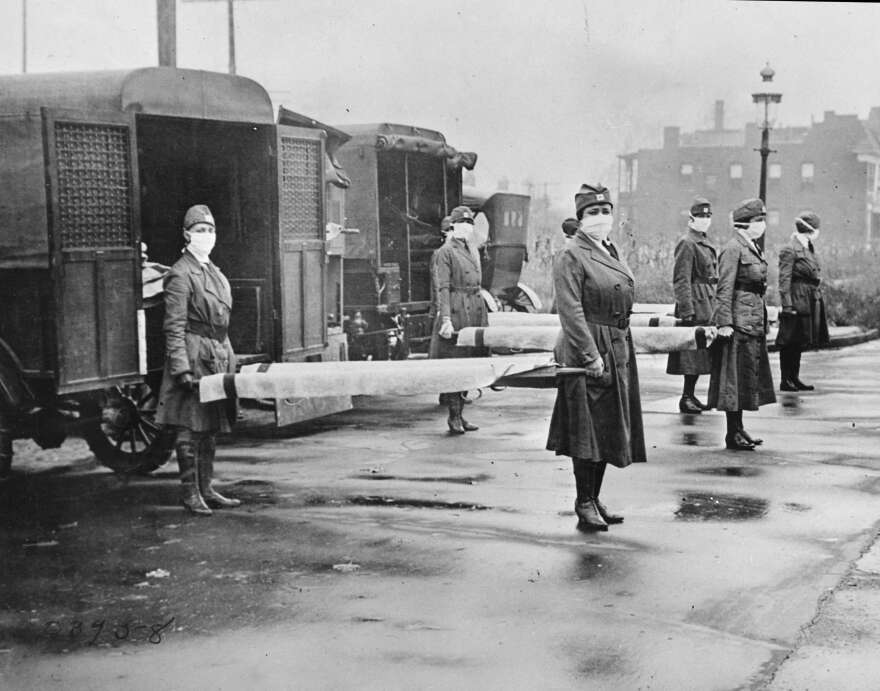Truth matters. Community matters. Your support makes both possible. LAist is one of the few places where news remains independent and free from political and corporate influence. Stand up for truth and for LAist. Make your year-end tax-deductible gift now.
What the 1918 flu pandemic reveals about how pandemics end

Will this pandemic ever end?
Well, the fact is — all pandemics DO end. But how do we, as a society, decide we’ve reached that point?
There aren’t great templates for this — except one. The end of the 1918 pandemic.
“People were very used to dealing with epidemics. Everyone knew somebody who died of a contagious disease. Many of those people had children who died,” Howard Markel says. “But once the cases fell down to almost nothing, both the doctors and the public agreed it’s time to go back to life.”
A different time, and a different disease. But there’s still much to learn.
“All historical lessons can teach you something. And to me right now, the greatest lesson was that we did survive,” he adds.
Today, On Point: How did the 1918 flu pandemic come to an end?
Guests
Howard Markel, professor and director of the Center for the History of Medicine at the University of Michigan. Author of “When Germs Travel: Six Major Epidemics That Have Invaded America Since 1900 and the Fears They Have Unleashed” and “The Secret of Life.” (@HowardMarkel)
Jack Beatty, On Point news analyst. (@JackBeattyNPR)
From The Reading List
The Atlantic: “Omicron Is the Beginning of the End” — “No matter the severity of the variant, the appetite for shutdowns or other large-scale social interventions simply isn’t there.”
This article was originally published on WBUR.org.
Copyright 2021 NPR. To see more, visit https://www.npr.org. 9(MDA1OTI3MjQ5MDEyODUwMTE2MzM1YzNmZA004))







